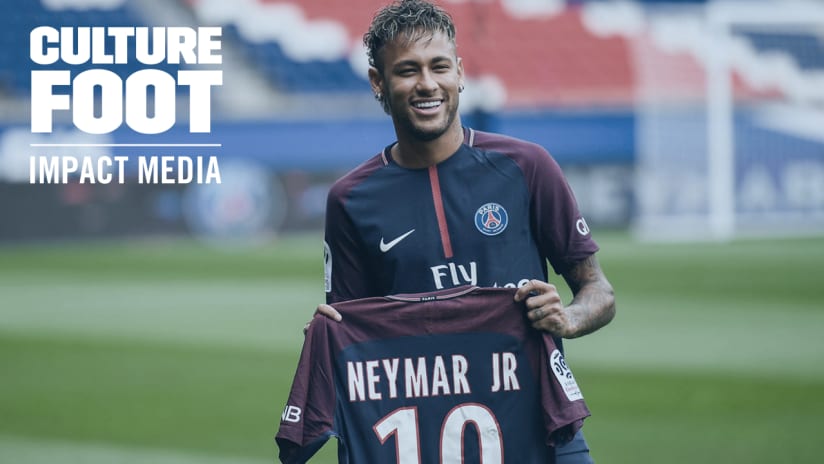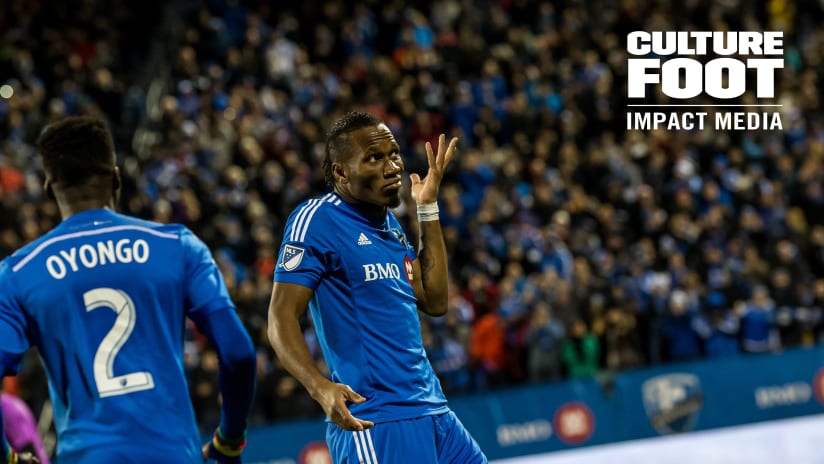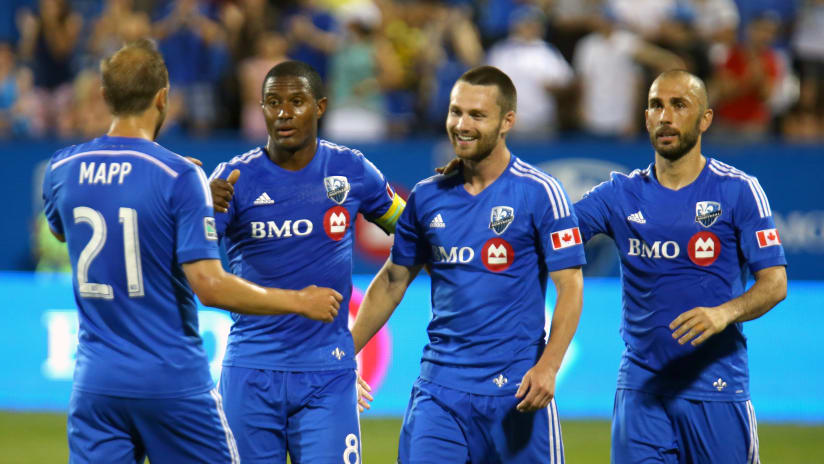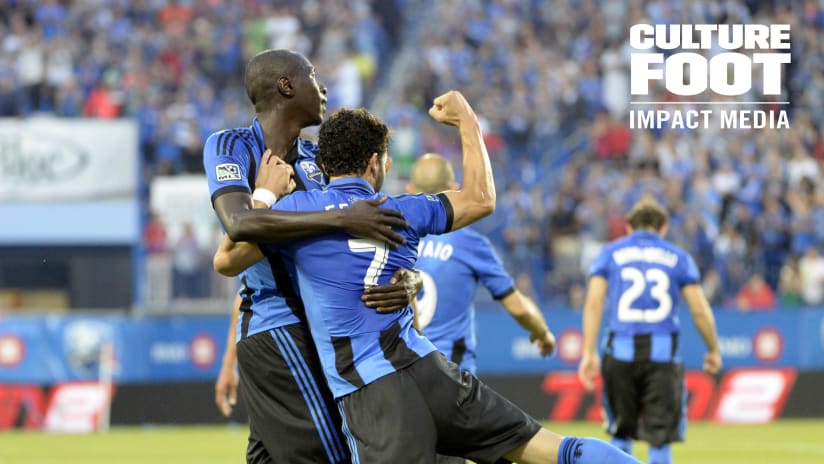Summarizing the last 12 months of world football is no easy task. AC Milan was bought by Chinese investors, powerhouses like Chile, Italy, and the United Sates failed to qualify for the World Cup, Wayne Rooney made his return to Everton, Arsenal failed to qualify for the Champions League for the first time in ages, Borussia Dortmund’s bus got bombed before a match against Monaco, and Grêmio won the Copa Libertadores. Although spectacular, none of these made Impact Media’s top 5. Let’s come back on the last 12 months in world football.
Neymar transferred to Paris Saint-Germain for a mountain of gold
Start of a new era or sign of the times? Probably a concoction of both. While central defender Gerard Piqué was posting an Instagram photo of himself and the Brazilian with the simple caption “se queda”, Neymar’s agents were finalizing the details of a record-breaking transfer with Nasser Al-Khelaifi and the Parisian club.
If Piqué paid the price for his Instagram post, it’s nothing compared to what PSG had to pay to acquire the Brazilian’s services: the release clause on Neymar’s contract was a modest 220 million euros. That’s more than double the previous world record, established by Manchester United when it bought former academy graduate Paul Pogba for a 105 million euro fee. Pogba had left for Juventus on a free transfer in 2012.
To say the transfer was complicated would be an understatement. Barca struggled tooth and nail to keep the vital “N” in MSN, and La Liga refused to endorse the transfer as well. You must admit, when a squadron of suits comes into your office with 220 million in cash – just rumours, although we have our doubts - to settle the bill, you would think we were in a cheap adaptation of a soap opera. At the same time, a change of presidency in the Royal Spanish Football Federation means it is more likely they were waiting for Juan Luis Larrea (yes yes, Gorka Larrea's dad) to sign the official documents.
All in all, another complicated transfer for Neymar; his departure from Santos to Barcelona also saw its share of complications. It wasn’t pretty this time around either, except on the field of course: 17 goals and 11 assists in just 19 games since the start of the season for Neymar.
Real Madrid wins two consecutive Champions League titles
Training at Centre Nutrilait during summer 2016, Real Madrid arrived in Montreal on the heels of an 11th Champions League title. Zinédine Zidane was preparing for his second season at the helm of the Madridistas, conserving the core of the group but adding some names, most notably a certain Marco Asensio, back from being on loan to RDC Espanyol.
The Merengues had an easy time getting out of the group stage, although they finished second to Borussia Dortmund. In the round of 16, Real drew Napoli, and eliminated the Italian team easily thanks to two 3-1 victories. Madrid’s next opponent was Bayern Munich, who always seems to get in the way of the Spanish giants in the UEFA Champions League.
Real Madrid took the first game at Allianz Arena by a score of 2-1, thanks to a brace from the Portuguese talisman, but the return leg proved to be a little trickier. It started when Arjen Robben fell in the box – no surprise there – and Lewandowski converted from the spot. Knowing full well that it needed one more goal to reach the semifinals, Bayern turned up the heat. However, Ronaldo would score again, this time with a header off a perfect cross from Casemiro, pushing Madrid that much closer to qualifying for the next round. But then a strange, strange, very strange own goal by Sergio Ramos meant that we would need extra time to settle the score. Obviously, Cristiano would prove again why he’s considered one of the world’s best by completing the hat-trick, before Asensio added the insurance.
CR7 wasn’t done yet. In the semifinals, we had ourselves a Madrid derby that was mostly finalized in the first game, Cristiano scoring three goals to give Real a 3-0 lead going into the second leg. Atléti gave the defending champions a scare by scoring twice in the first 20 minutes, but la remontada went stale as Zizou and his team were able to hold on for the win.
It was on to the final for a second straight year for Madrid, this time against Gianluigi Buffon and Juventus. Ronaldo got Madrid on the board early, but Mario Mandžukić pulled the Italian side level before the half with one of the most beautiful goals the competition has ever seen. However, the Merengues proved to be too powerful at the end. Led by Cristiano Ronaldo and the midfielder trio of Casemiro, Toni Kroos and Luka Modrić, Madrid pulled away in the second half and won the game 4-1, earning its 12th Champions League trophy, a welcome addition to the museum at the Santiago Bernabéu.
Video review comes to MLS
A big change, but not that big, took place in August in Major League Soccer: referees started using video review on certain decisions, in certain situations. For now, it’s mission accomplished for Howard Webb and his team, who oversaw the implementation of the system and trained referees on how to use it.
We’ve seen it used first hand at Stade Saputo, both in positive and negative circumstances, but each time the decision was justifiable, even though local supporters were sometimes left unsatisfied because of the outcome.
All in all, the implementation of this system has not hindered the rhythm of the game: video review is used on average once every three games, but almost 10 instances are reviewed by the Video Assistant Referee every game – without anything further required from the head referee. The MLS summarized its first experiences with video review here.
Canada, Mexico, and the United States submit bid to host 2026 FIFA World Cup
Canada at the World Cup? It’s a dream that is slowly becoming more plausible. A young generation of Canadian talent, with Alphonso Davies at the helm, is making people believe in the Canadian Men’s National Team like they never have before. But the best way to qualify for the World Cup is by hosting it. That’s the North American plan going into 2026.
It would be the first time FIFA allowed more than two countries to host the biggest sports tournament in the world. The only other time a similar bid was accepted was in 2002, when the World Cup was hosted in Asia for the first – and only – time. South Korea and Japan hosted the tournament in 20 different cities.
Will we see one or multiple World Cup matches in Montreal? It is possible, since our venerable Olympic Stadium, which will receive some much-needed love in the next few years, can host a large crowd that is on par with FIFA regulations. Whether or not FIFA will require a grass field is another issue, although the Impact opted for fresh grass at the Big O when AC Milan visited in 2010.
Chapecoense qualifies for the Copa Libertadores
Although it may not have been the most talked about news, it’s still quite a story. Chapecoense was heading to Columbia for the Copa Sudamericana final, against Atlético Nacional – a team in which Pablo Escobar had invested millions, but that’s another story – when the plane they were travelling in crashed, killing 71 people, and almost the entire team. The small club from Chapecó, a city with roughly 200,000 inhabitants in the south of Brazil, now had the difficult task of rebuilding a team from zero, while also mourning the most tragic incident it ever experienced.
Chape, against all odds, had a miraculous start to the season, sitting first in the Brazilian Serie A after three rounds, but eventually falling to the relegation zone. But in the second half of the season, the Furacão do Oeste blew its mighty wind and managed to move up and in the standings to the cusp of qualifying for the continental tournament.
Ninth in the standings before the last day of the season, Chapo absolutely needed to win against a Coritiba team that was at the bottom of the table in order to finish 8th. But they also needed Botafogo to drop points. Kléber Gladiator opened the scoring early for the visitors by scoring a goal as cheeky as his name, but Elicarlos tied the game before the break when his missed cross went off the post and in.
Chape pushed, pushed, and pushed some more. They missed golden opportunities off corners, and hit the crossbar off a long shot. They still dared to dream, knowing that Botafogo and Cruzerio were still tied at two goals apiece.
Then, the unthinkable happened. In the 95th minute, Apodi beat the offside trap and fed the ball to Túlio de Melo, whose game-winning header pushed Chape into the Copa Libertadores. We’ll let you know when the Netflix series is out.




